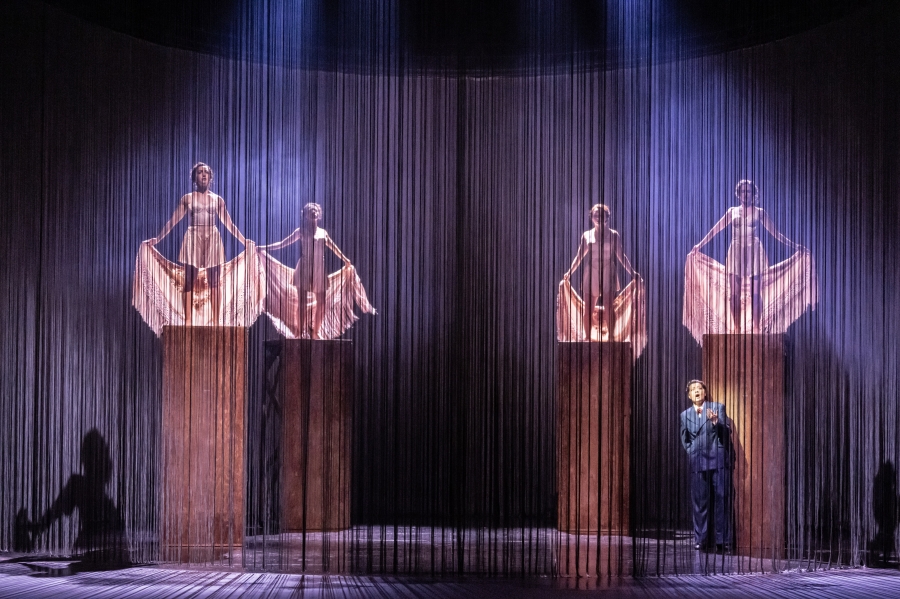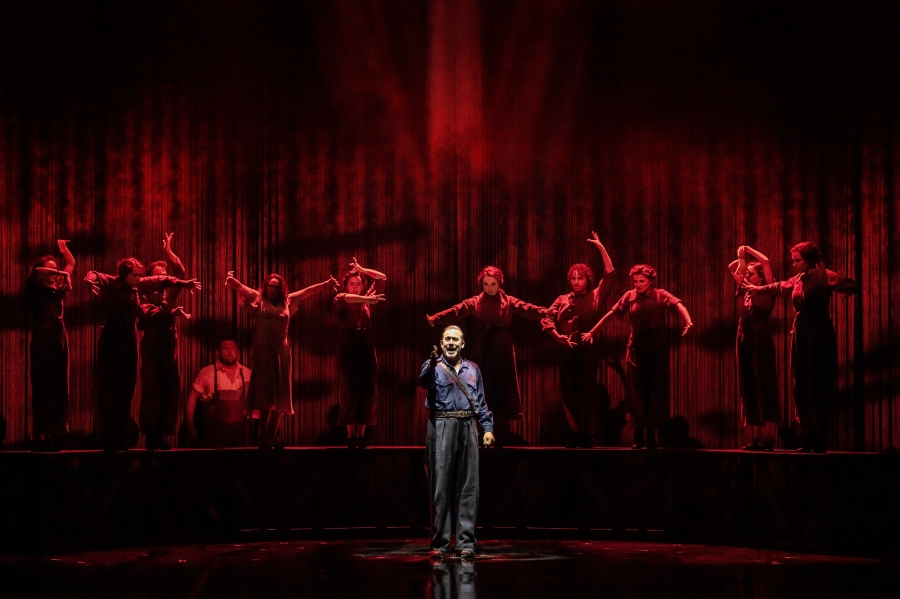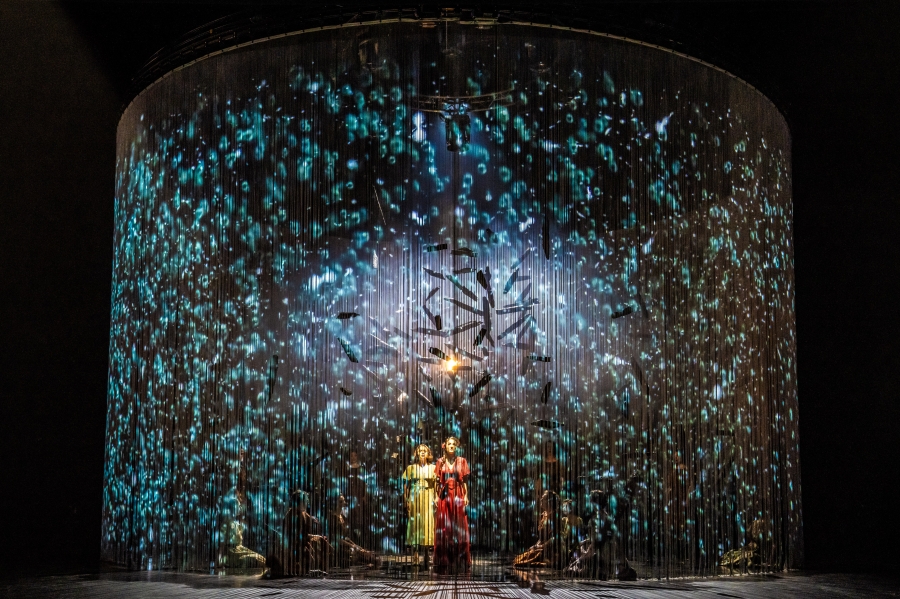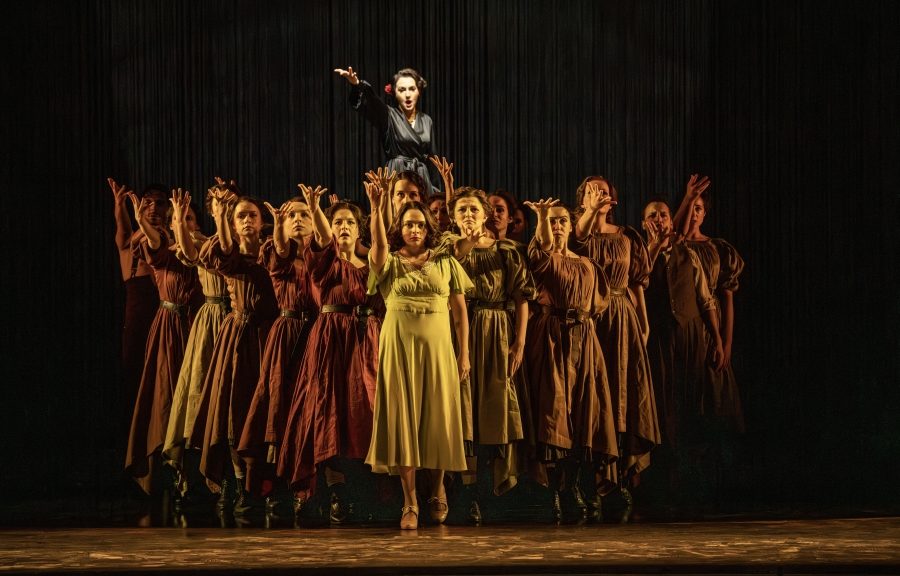 (3 / 5)
(3 / 5)
Ainadamar is an homage to poet Federico Garcia Lorca, who was killed by the fascist falangists during the Spanish civil war in 1936. It is told through a series of tableaux where actress Margarita Xirgu, Lorca’s muse, reminisces with her student Nuria of the time she met Lorca, her attempt at persuading him to leave Spain, and his execution.
Ainadamar, which in Arabic means fountain of tears, is one of the early works of eclectic composer Osvaldo Golijov, who excels at weaving together folk, pop, and classical music in harmonious balance. Here, Golijov brings together flamenco’s cante jondo (deep song), electronic sounds, mournful ballads, and classical opera references. His musical complexity is refined but overly dominated by longing and anguish.
The astounding performances of Jaquelina Livieri as Xirgu, Hanna Hipp as Lorca, and Julieth Lozano Rolong as Nuria, make for intense moments of longing, hope, and loss. The imaginative light design and direction keep the audience engaged countering a too simple narrative with no emotional arc.

Hanna Hipp as Federico Garcia Lorca, photo credit Johan Persson
Ainadamar opens with Margarita Xirgu (Jacquelina Livieri) preparing to go on stage as Mariana Pineda, the 19th century liberal martyr subject of Lorca’s play. She tells her student, Nuria (Julieth Lozano Rolong) of meeting Lorca in a bar in Madrid. The scene shifts from a light-hearted rumba to a nostalgic duet. Jaquelina Livieri’s agile and rich voice make Margarita spell-binding. Mezzo-soprano Hanna Hipp, as Lorca, has power and stage-presence, yet tender in her duet with Livieri.
The memory of Havana is broken by the harsh radio broadcast of fascist Falangist Ruiz Alonso. Alfredo Tejada, as Alonso, conveys power and anguish as flamenco cantaor counterbalancing Lorca’s flamenco cante jondo.

Alfredo Tejada as Ruiz Alonso, photo credit Johan Persson
In another flashback, Margarita recounts her attempt at persuading Lorca to flee to Cuba. The nostalgic and dreamlike image of Havana, the route not taken, is a sensual and playful moment that gives way to grief. Lorca does not want to run away and chooses to be executed.
The final tableau is in the diegetic present of 1969 when Margarita is dying in Uruguay recalling Pineda’s last words of freedom. She is joined by the ghost of Lorca. The scene fades out rather than reach a climax. The sense of loss and longing dominates Ainadamar from beginning to end. There is intensity but no drama.

Photo credit Johan Persson

